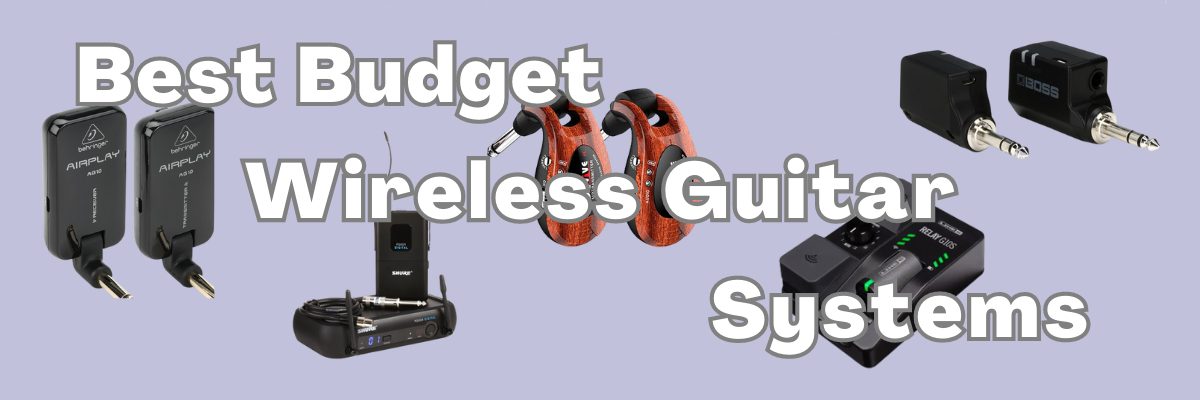Best Budget Wireless Guitar System: Affordable Options for a High-Quality Performance. Looking for the best budget wireless guitar system can be daunting.
Table of Contents
Hi. Ian here and welcome to this article on the best budget wireless guitar system.
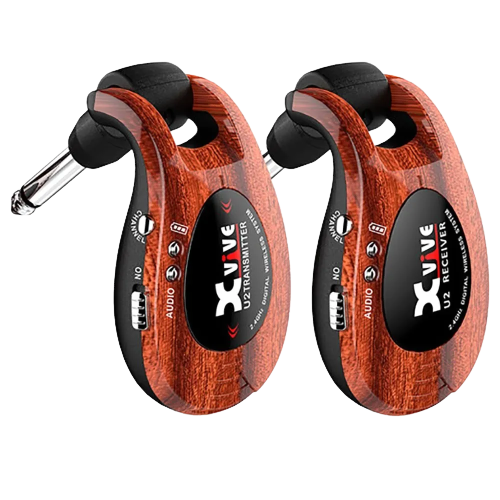
If you’re reading this, I’m assuming you’re one of two people: either you’re tired of tripping over your guitar cable, or you’re looking for a way to improve your stage presence. If it’s the former, then you’ve come to the right place. And if it’s the latter, well, a wireless guitar system can definitely help with that too.
But before we dive into the nitty-gritty, let’s talk about what makes a wireless guitar system good.
First and foremost, you want a system with excellent sound quality. You don’t want to sacrifice your tone just for the convenience of going wireless. Second, you want a system with a long range.
You don’t want to have to worry about your signal dropping out when you’re moving around on stage. And third, you want a system that’s easy to use. You shouldn’t have to spend hours fiddling with settings just to get it to work.
So, what are the best budget wireless guitar systems on the market? Here are a few of my top picks:
- Behringer Airplay Guitar AG10 Digital Wireless Guitar System: This system is a great value for the price. It offers excellent sound quality, a long range, and it’s very easy to use.
- AKG WMS40 Mini: This system is a bit more expensive than the Behringer, but it’s worth it for the improved sound quality and build quality.
- Xvive Wireless System U2: This system is a great option for beginners on a budget. It’s not as feature-rich as the other two systems, but it still offers good sound quality and a long range.
No matter what your budget is, there’s a wireless guitar system out there that’s right for you. So do your research and find a system that fits your needs. And once you do, you’ll be able to enjoy the freedom of playing guitar without having to worry about your cable getting in the way.
Here are a few additional tips for choosing a wireless guitar system:
- Consider the type of guitar you play: If you play a passive guitar, you’ll need a wireless system that has a built-in buffer. This will help to prevent your tone from being attenuated.
- Think about where you’ll be using the system: If you’ll be using the system in a crowded environment, you’ll want a system that has a wide frequency range to help avoid interference.
- Read reviews before you buy: Once you’ve narrowed down your choices, read reviews from other guitarists to get their feedback on the different systems.
When it comes to choosing a wireless guitar system, there are many factors to consider, including range, battery life, and sound quality. One of the main benefits of a wireless guitar system is the freedom it provides, allowing you to move around the stage or practice room without being tethered to your amplifier.
However, it’s important to choose a system that won’t compromise on sound quality or reliability. In this article, we’ll be looking at the top options available that strike the perfect balance between affordability and performance.
Understanding Wireless Guitar Systems
If you’re looking to cut the cord and free yourself from tangled cables, a wireless guitar system is a great investment. But before you make your purchase, it’s important to understand how these systems work and what features to look out for.
A wireless guitar system consists of two main components: a transmitter and a receiver. The transmitter is attached to your guitar, while the receiver is plugged into your amplifier or pedalboard. The transmitter sends a signal to the receiver, allowing you to play your guitar wirelessly.
One of the most important factors to consider when choosing a wireless guitar system is range. Range refers to the distance between the transmitter and receiver, and it’s important to choose a system with a range that suits your needs. If you’re playing on a large stage, you’ll need a system with a longer range than if you’re playing in a small venue.
Another important factor is quality. The quality of your wireless guitar system will affect the sound of your guitar, so it’s important to choose a system with good sound quality. Look out for systems with a high-frequency range and frequency response, as well as good stability.
Battery life is also an important consideration. Look for systems with long battery life, or ones that are rechargeable. Latency, or the delay between playing your guitar and hearing the sound, is another factor to consider. Look for systems with low latency to ensure a smooth playing experience.
Interference can be a problem with wireless guitar systems, so it’s important to choose a system with good interference protection. Look for systems that use UHF frequencies, as these are less prone to interference than analog systems.
Finally, consider the technology used by the system. Digital wireless systems offer better sound quality and more advanced features, such as frequency management and scanning. Analog systems are simpler and more affordable, but may not offer the same level of sound quality.
Overall, a wireless guitar system can be a great investment for any guitarist looking to free themselves from cables. By considering factors such as range, quality, battery life, latency, interference, and technology, you can choose a system that suits your needs and budget.
Top Budget Wireless Guitar Systems
If you’re looking for a wireless guitar system that won’t break the bank, there are plenty of options available. Here are some of the top-budget wireless guitar systems to consider:
Behringer Airplay Guitar AG10
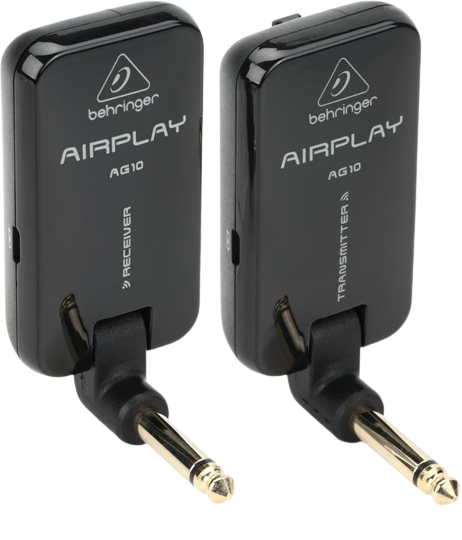
The Behringer Airplay Guitar AG10 is a great option for those on a tight budget. It has an excellent range, and outstanding battery life, and delivers audio quality that is on par with more expensive systems. It is easy to use and comes with everything you need to get started.
Pros:
- Affordable price
- Excellent range
- Outstanding battery life
- Audio quality is as good as more expensive systems
- Easy to use
Cons:
Some users have reported occasional interference
Boss WL-20 Wireless System
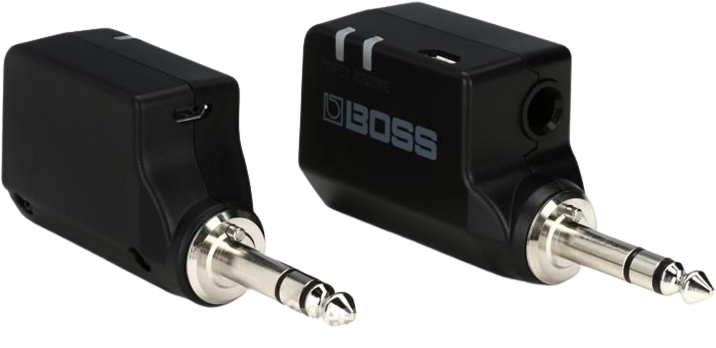
The Boss WL-20 is a compact and affordable wireless system that is perfect for guitarists who want to cut the cord. It has a range of up to 50 feet and delivers high-quality audio with no noticeable lag. It is easy to use and comes with a rechargeable battery that provides up to 10 hours of use.
Pros:
- Compact and affordable
- Range of up to 50 feet
- High-quality audio with no noticeable lag
- Rechargeable battery provides up to 10 hours of use
- Easy to use
Cons:
Some users have reported occasional interference
Xvive U2 Wireless System

The Xvive U2 is a budget-friendly wireless system that delivers high-quality audio with no noticeable lag. It has a range of up to 100 feet and is easy to use. It comes with a rechargeable battery that provides up to 5 hours of use.
Pros:
- Budget-friendly
- Range of up to 100 feet
- High-quality audio with no noticeable lag
- Rechargeable battery provides up to 5 hours of use
- Easy to use
Cons:
Some users have reported occasional interference
Line 6 Relay G10S Wireless System
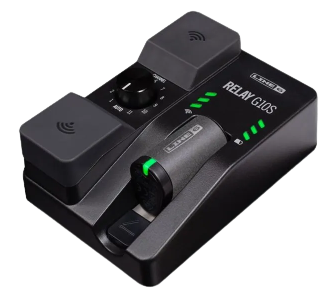
The Line 6 Relay G10S is an affordable wireless system that delivers high-quality audio with no noticeable lag. It has a range of up to 130 feet and is easy to use. It comes with a rechargeable battery that provides up to 8 hours of use.
Pros:
- Affordable
- Range of up to 130 feet
- High-quality audio with no noticeable lag
- Rechargeable battery provides up to 8 hours of use
- Easy to use
Cons:
Some users have reported occasional interference
Shure PGXD14 Digital Wireless Guitar System
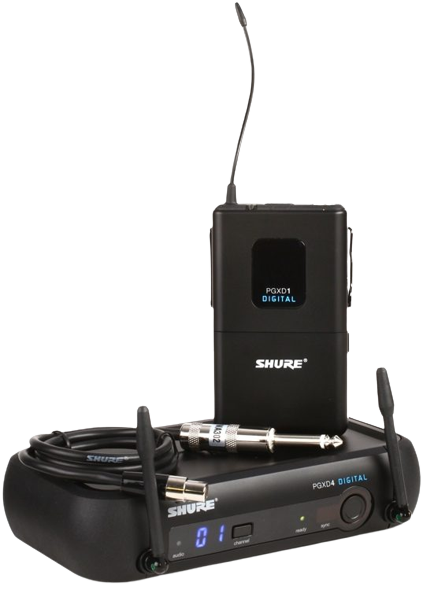
The Shure PGXD14 is a budget-friendly wireless system that delivers high-quality audio with no noticeable lag. It has a range of up to 200 feet and is easy to use. It comes with a bodypack transmitter and a receiver.
Pros:
- Budget-friendly
- Range of up to 200 feet
- High-quality audio with no noticeable lag
- Easy to use
Cons:
Some users have reported occasional interference
When it comes to choosing a budget wireless guitar system, there are plenty of options available. These systems offer high-quality audio, a good range, and are easy to use. Whether you’re a beginner or a seasoned pro, one of these systems is sure to meet your needs.
Key Features to Consider
When choosing a budget wireless guitar system, there are a few key features to consider to ensure that you get the best value for your money. Here are some of the most important factors to keep in mind:
Audio Quality
One of the most important factors to consider when choosing a wireless guitar system is the audio quality. You want to ensure that your guitar sounds just as good through the wireless system as it does when it’s plugged in with a cable. Look for a system with a wide frequency range and a high dynamic range to ensure that you get the best sound possible.
Operation Range
Another important consideration is the operation range of the wireless system. You want to make sure that you can move around freely on stage without any dropouts or interference. Look for a system with a range of at least 50 feet to ensure that you have plenty of room to move.
Ease of Use
A good wireless guitar system should be easy to set up and use. Look for a system with a simple interface and clear instructions to ensure that you can get up and running quickly. Additionally, consider whether the system requires any special cables or adapters that you don’t already have.
Durability
A wireless guitar system is an investment, so you want to make sure that it’s built to last. Look for a system with sturdy construction and durable materials, such as ABS plastic. Additionally, consider whether the system has a built-in tuner or other features that could be useful for your playing style.
Battery Life
Finally, consider the battery life of the wireless system. Look for a system with a rechargeable lithium-ion battery or AA batteries, depending on your preference. Make sure that the battery life is long enough to last through even the longest gigs to ensure that you don’t run out of power mid-performance.
Overall, a budget wireless guitar system can be a great investment for any guitarist looking to free themselves from the limitations of cables. By considering these key features, you can ensure that you choose a system that meets your needs and provides the best value for your money.
Benefits of Using a Wireless Guitar System
If you’re a guitarist, you know how important it is to have the freedom to move around on stage while playing your instrument. A wireless guitar system can provide you with that freedom and more. Here are some benefits of using a wireless guitar system:
Performance Freedom
One of the most significant advantages of using a wireless guitar system is the freedom it provides you on stage. You can move around without worrying about tripping over cables or getting tangled up in them. This freedom can help you give a better performance, as you can focus more on your playing and less on your movements.
Wireless Range
Wireless guitar systems come in different ranges, and you can choose one that suits your needs. Some systems have a range of up to 30 meters, which is ideal for outdoor performances and larger stages. You can move around freely without worrying about losing your signal.
Plug ‘n’ Play
Most wireless guitar systems are plug ‘n’ play, which means you can set them up quickly and easily without any technical knowledge. You don’t need to worry about complex wiring or configurations. Simply plug in the transmitter and receiver, and you’re good to go.
Overall, a wireless guitar system can provide you with the freedom and flexibility you need to give your best performance. However, you should weigh the pros and cons before making a purchase to ensure that you get the right system for your needs and budget.
Wireless Systems for Different Guitars
When it comes to choosing a wireless system for your guitar, it’s important to consider the type of guitar you have. Different guitars may have different pickup types, and some may require more or less signal strength to produce a clear sound. Here are some things to keep in mind when choosing a wireless system for your guitar:
Electric Guitars
If you have an electric guitar with passive pickups, you may want to consider a wireless system with higher signal strength. This will help ensure that the signal remains strong and clear, even when you’re playing through a lot of distortion or other effects. Some popular wireless systems for electric guitars include the Line 6 Relay G10S and the Shure GLXD14R.
On the other hand, if you have an electric guitar with active pickups, you may not need as much signal strength. Active pickups are designed to produce a stronger signal than passive pickups, so you may be able to get away with a lower-powered wireless system. The Audio-Technica System 10 ATW-1101/G is a popular option for guitars with active pickups.
Bass Guitars
Bass guitars may require a slightly different wireless system than electric guitars. Because bass frequencies are lower than guitar frequencies, you may want to look for a wireless system that is designed specifically for bass guitars. Some popular options include the Sennheiser EW 100 G4-CI1 and the AKG WMS40 Mini2 Vocal Set.
Different Types of Guitars
If you have multiple types of guitars, you may want to consider a wireless system that is versatile enough to work with all of them. Some wireless systems, like the Line 6 Relay G10S, are designed to work with both electric and acoustic guitars. Others, like the Shure GLXD14R, may require different cables or adapters to work with different types of guitars.
Pros and Cons
When choosing a wireless system for your guitar, it’s important to consider the pros and cons of each option. Here are some things to keep in mind:
Pros
- Wireless systems allow you to move around freely on stage without being tethered to a cable.
- They can help reduce cable clutter and make your setup look cleaner.
- Some wireless systems offer additional features, like built-in effects or EQ controls.
Cons
- Wireless systems can be more expensive than traditional cables.
- They may require additional setup time and maintenance.
- Some wireless systems may introduce additional latency or interference, which can affect your playing.
Overall, choosing the right wireless system for your guitar will depend on your specific needs and preferences. Consider the type of guitar you have, the signal strength you need, and any additional features you may want when making your decision.
Budget Considerations
When looking for a budget wireless guitar system, there are a few things to keep in mind to ensure that you get the best value for your money. Here are some factors to consider:
Budget
The first thing to consider is your budget. You want to make sure that you get a system that fits within your budget. There are many affordable options available, but keep in mind that the cheapest option may not always be the best.
Features
When it comes to budget systems, you may have to compromise on some features. However, there are still some key features that you should look for, such as:
- Range: Make sure that the system has a range that is suitable for your needs. You don’t want to be limited in your movement while playing.
- Battery life: Look for a system with a long battery life, so you don’t have to worry about constantly replacing batteries.
- Compatibility: Make sure that the system is compatible with your guitar and amplifier.
Pros and Cons
Here are some pros and cons to consider when looking for a budget wireless guitar system:
Pros
- Affordable: Budget systems are generally much cheaper than high-end systems, making them a great option for those on a tight budget.
- Easy to use: Most budget systems are easy to set up and use, making them a great option for beginners.
- Portable: Wireless systems are much more portable than traditional wired systems, making them a great option for gigging musicians.
Cons
- Limited range: Budget systems often have a limited range, which can be a problem if you need to move around a lot while playing.
- Limited features: Budget systems may not have all the features that you need, such as multiple channels or advanced EQ settings.
- Lower quality: Budget systems may not have the same level of sound quality as high-end systems, which can be a problem for more discerning musicians.
Overall, when looking for a budget wireless guitar system, it’s important to find a balance between affordability and features. Make sure to do your research and read reviews before making a purchase to ensure that you get the best value for your money.
Buying Advice
When it comes to buying a budget wireless guitar system, there are a few things to keep in mind to ensure that you get the best value for your money. Here are some buying advice tips to help you make an informed decision.
Professional Quality
Just because you are on a budget, it doesn’t mean you have to compromise on the quality of your wireless guitar system. Look for systems that offer professional-level sound quality and reliability, even if they are in the lower price range.
Tangled Cables
One of the main reasons guitarists opt for wireless systems is to avoid the hassle of tangled cables. Look for systems that are easy to set up and use, with minimal cables and clutter.
Donner DWS-3
The Donner DWS-3 is a popular budget wireless guitar system that offers great value for money. It features dual antennas for a strong and stable signal, automatic frequency selection, and a range of up to 200 feet.
In conclusion, when buying a budget wireless guitar system, look for professional-level quality, ease of use, and minimal cables. The Donner DWS-3 is a great option to consider, but be aware of the pros and cons of budget systems before making your purchase.
More Pros and Cons
When it comes to choosing a budget wireless guitar system, you need to weigh the pros and cons. Here are some things to consider before making your purchase.
Pros
- Freedom of Movement: One of the most significant advantages of a wireless guitar system is the freedom of movement it provides. Without cables, you can move around the stage or your room freely, which can improve your performance and creativity.
- Less Clutter: With a wireless guitar system, you don’t have to worry about tripping over cables or getting tangled up in them. This means less clutter on stage or in your room, making it easier to set up and pack up your gear.
- Improved Sound Quality: Wireless guitar systems can provide improved sound quality, especially if you’re using a high-quality system. Without cables, you don’t have to worry about signal loss or interference, which can affect your tone.
- Easy Setup: Wireless guitar systems are generally easy to set up and use. Most systems come with clear instructions, and you don’t need any special skills or knowledge to get started.
Cons
- Battery Life: One of the biggest drawbacks of wireless guitar systems is battery life. Most systems require batteries, and if you forget to replace them, your system won’t work. This means you need to keep spare batteries on hand and remember to replace them regularly.
- Interference: Wireless guitar systems can be prone to interference from other devices, such as mobile phones or Wi-Fi routers. This can affect your sound quality and performance, so it’s important to choose a system that is resistant to interference.
- Cost: While budget wireless guitar systems are available, they may not provide the same quality as more expensive systems. If you’re looking for the best sound quality, you may need to invest in a higher-end system.
- Latency: Some wireless guitar systems can have latency issues, which means there is a delay between when you play a note and when you hear it. This can be frustrating and affect your performance, so it’s important to choose a system with low latency.
Overall, a budget wireless guitar system can provide many benefits, but it’s important to weigh the pros and cons before making your purchase. Consider your needs and budget, and choose a system that meets your requirements.
Frequently Asked Questions
What are some popular wireless guitar systems for musicians on a budget?
If you’re looking for a budget-friendly wireless guitar system, there are plenty of options available. Some popular choices include the Behringer Airplay Guitar AG10 Digital Wireless Guitar System, AKG WMS40 Mini, and NUX B-5RC. These systems offer reliable performance at an affordable price point.
Are there any wireless guitar systems that work well with active pickups?
Yes, there are wireless guitar systems that work well with active pickups. Look for systems that offer high-impedance inputs, as these are designed to work with active pickups. Some examples include the Line 6 Relay G30 and Shure BLX14UK-K3E.
What is the difference between 2.4 GHz and 5.8 GHz for wireless guitar systems?
The main difference between 2.4 GHz and 5.8 GHz for wireless guitar systems is the frequency range. 2.4 GHz systems are more common and tend to be less expensive, but they can be more prone to interference from other wireless devices. 5.8 GHz systems offer a higher frequency range and are less likely to experience interference, but they can be more expensive.
Do wireless guitar systems affect the tone of the guitar?
Wireless guitar systems can affect the tone of the guitar, but the impact is typically minimal. Some systems may introduce a slight loss of high-end frequencies or a small amount of latency, but these issues are generally not noticeable to the average listener.
Which wireless guitar systems do professional musicians prefer?
Professional musicians have a wide range of preferences when it comes to wireless guitar systems. Some popular choices include the Line 6 Relay G10S, Boss WL-50, and Sennheiser XSW-D Wireless Digital Pedalboard Set. Ultimately, the best system for you will depend on your specific needs and preferences.
Is it worth investing in a wireless guitar system for live performances?
Investing in a wireless guitar system can be a great choice for live performances, as it allows for greater freedom of movement on stage. However, it’s important to choose a system that offers reliable performance and won’t introduce unwanted noise or interference. Consider your specific needs and budget when making a decision.
Conclusion
In conclusion, finding the best budget wireless guitar system can be a daunting task. However, with the right information, you can make an informed decision that suits your needs and budget.
After researching and analyzing the available options, we have identified some of the best budget wireless guitar systems on the market. Here are the pros and cons of each option:
| Product | Pros | Cons |
|---|---|---|
| Behringer Airplay Guitar AG10 | Excellent range, Outstanding battery life, Good audio quality | Plastic construction, Limited compatibility |
| Line 6 Relay G10S | Easy to use, Good range, Compact design | Expensive, Limited compatibility |
| Shure GLXD16 | Professional-grade quality, Good range, Easy to use | Expensive, Limited compatibility |
| Boss WL-20 | Affordable, Good range, USB-charging | No battery level indicator, Limited compatibility |
| Sennheiser XSW 1-Cl1 | Good range, Easy to use, Good audio quality | Expensive, Limited compatibility |
Ultimately, the best budget wireless guitar system for you will depend on your specific needs and preferences. If you’re looking for a reliable and affordable option, the Behringer Airplay Guitar AG10 and Boss WL-20 are both great choices. However, if you’re willing to invest in professional-grade quality, the Shure GLXD16 and Sennheiser XSW 1-Cl1 are excellent options.
No matter which product you choose, a wireless guitar system can greatly enhance your playing experience by freeing you from the constraints of cables and allowing you to move around freely on stage. We hope this guide has been helpful in your search for the best budget wireless guitar system.
